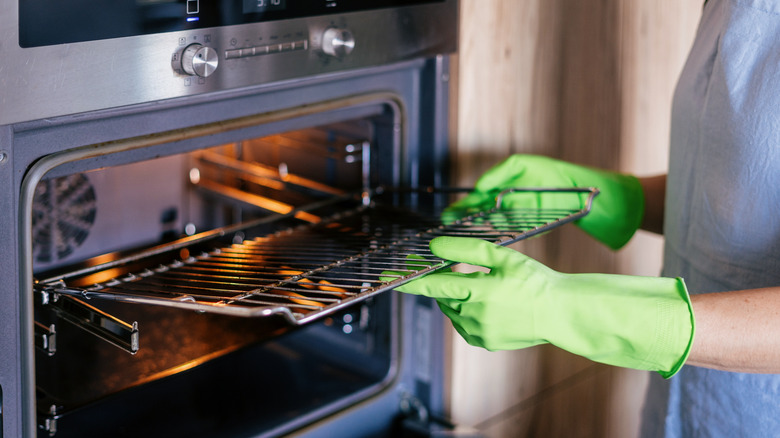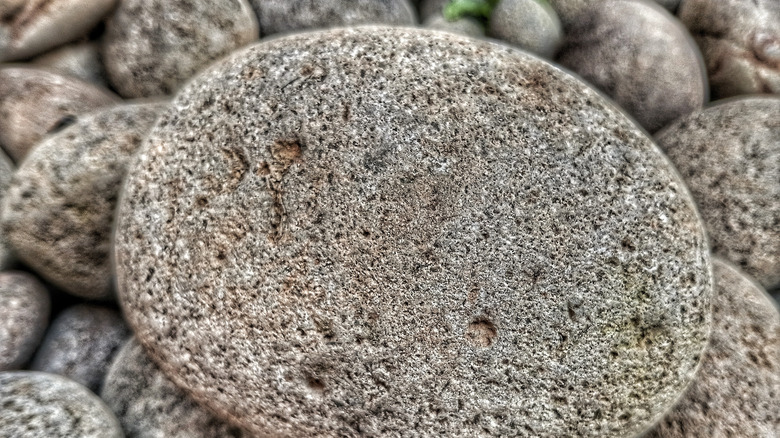The Old-School Tool That Makes Cleaning Hard-To-Remove Kitchen Grime A Breeze
You probably think of pumice stone as a product one uses to exfoliate crusty feet when sandal season rolls around, but this porous volcanic rock has serious cleaning power far beyond pedicures. In fact, it's one of the most underrated tools in your home cleaning arsenal, especially when it comes to scrubbing stubborn grime without a bunch of stinky, harsh chemicals. Note: There are all kinds of pumices for different surfaces, so don't try to use your foot pumice in place of a scouring stick or cleaning block.
Thanks to its gritty texture and natural abrasiveness, pumice can break through mineral deposits, baked-on food, and soap scum surprisingly well. The trick is knowing when (and where) to use it. Its extreme grit is obviously not for every surface, but it works wonders on the right ones. Pumie is one brand that's frequently recommended by experts, and its scouring stick comes in a two-pack on Amazon.
Pumice stones are wonderfully effective in the kitchen for scrubbing tough, baked-on grime from surfaces like oven racks, grill grates, and even casserole dishes. But don't go scrubbing the stone willy-nilly on any old surface. Never use pumice on plastic, fiberglass, or Teflon, because it can scratch or gouge delicate surfaces. And before you begin any cleaning, soak the pumice stone in water for a few minutes; this helps prevent scratching. Then, gently rub the stone against the stained area in small circles for best results.
Pumice stones are natural cleaners made straight from the earth
If you're wondering if you should use your oven's self-cleaning feature, pumice has got you. Years of baked-on grease and carbon in ovens can be nearly impossible to scrub off. Enter the pumice stone. Wet the stone and the glass surface, then gently rub. Don't go overboard with pressure, and avoid using it on oven doors with special coatings. The scouring stick will strip away layers of burnt residue without you resorting to using toxic oven cleaner.
The same goes for your grill, which also does a swell job accumulating bits of charred food, sauce, and carbon buildup after every barbecue session. With the right pumice, you can scrub those grates back to life. Heat the grill slightly to loosen debris, then shut it off. Once the grates are warm (not hot), wet your pumice stone and rub it across the bars. The stone helps you remove gunk without any soap or steel brushes.
They're also safe for cleaning porcelain sinks, thanks to their abrasive yet non-toxic properties. Try the stone on mineral deposits found around faucet bases or inside metal sinks. A damp pumice stone can also easily remove chalky white limescale buildup left by hard water. Pumice stones can be super effective, but they're not universally safe. Remember to always wet the stone and the surface you're cleaning to avoid scratches. And when in doubt, always test it in a small, hidden area first.

